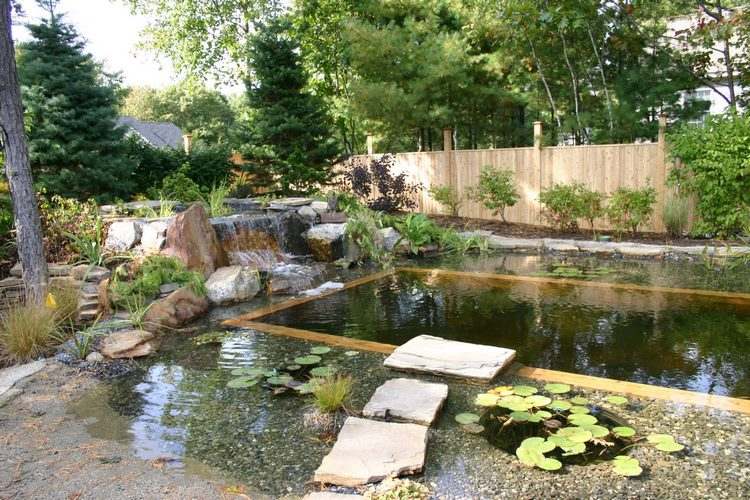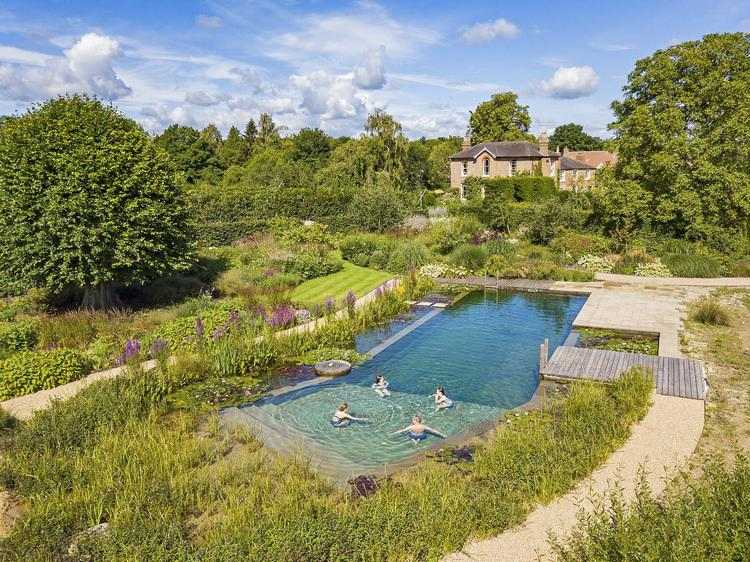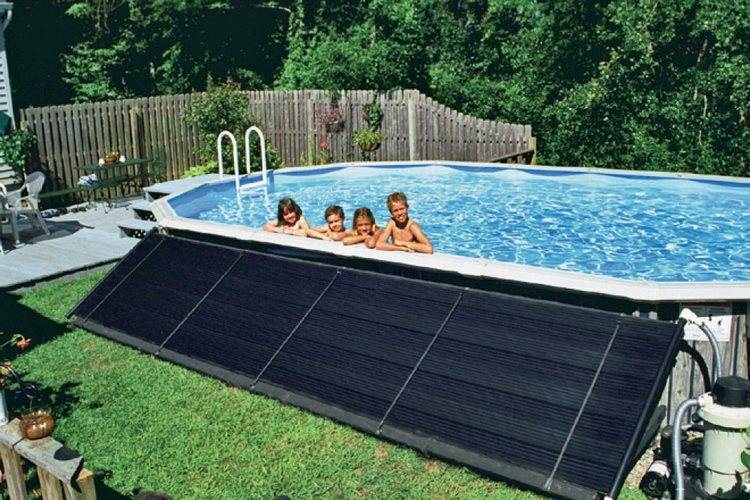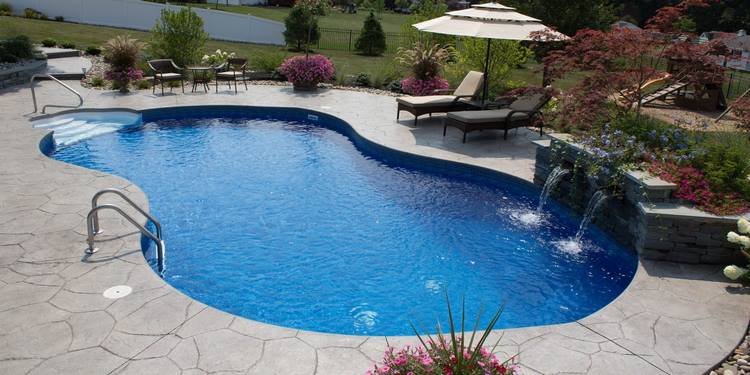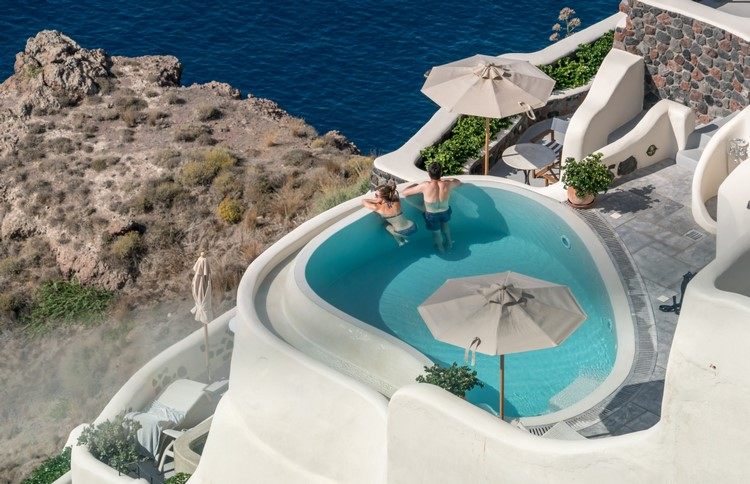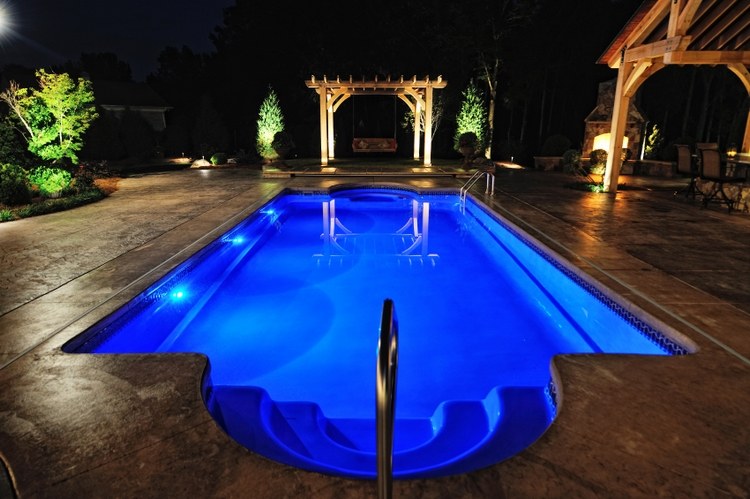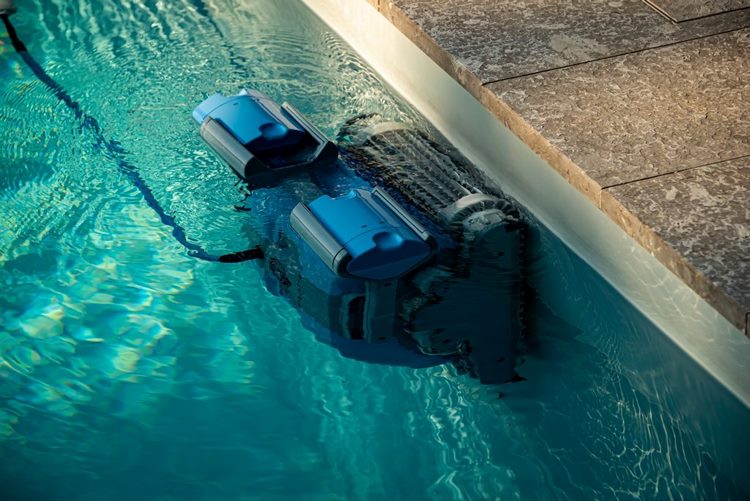Swimming pools are one of the most luxurious features that your home can ever have. But on a bad note, it also takes a lot of materials and energy to build and maintain them. Issues like wasted water, harmful chemicals, and fuel consumption in heating are some environmental issues often attached to pool ownership. In this blog, we will discuss how to become an environmentally conscious pool owner and will give you 6 tips to make your pool eco-friendly.
With modern technologies, it becomes easier to make a pool less harmful to the environment. From building natural pools to choosing the right pool cleaning chemicals, there are so many things you can do. Consider the following pieces of advice:
1. Choose a natural pool
During the planning stage, you can think about building a natural pool. Reed technology or moss filtration is used for removing dirt from the water of natural pools. When combined with an eco-pump, this water treatment system works effectively without the need for harmful chemicals.
Cleaning and sanitizing chemicals commonly used in traditional pools are harmful to your body. They can also contaminate the area around the pool when they leaked or splashed around. This can potentially harm your plants and the environment in general.
It’s important to discuss your idea with your pool builder to ensure that your natural pool is installed correctly. The pool construction can take more time and effort to plan and execute, but it’s definitely worth it in the end.
2. How to make your pool eco friendly – Use less concrete
Using concrete when building a pool is inevitable since you will need to adhere your materials to the ground. However, concrete is not effective in keeping out bacteria from going into the pool. It is a porous material susceptible to erosion and breakage over time, allowing bacteria to get inside the pool.
Instead of concrete, fiberglass or carbon-ceramic composite is a better alternative since they are non-porous. Swimming pools built with these materials come in a one-piece compartment, unlike traditional pools that need to be made from scratch. This construction method ensures a cleaner environment. The use of non-porous materials is effective in preventing bacteria from seeping into the pool.
Another problem in using concrete for the pool is that once the water is contaminated with bacteria, the natural filtration system will have difficulty flushing them out. When this happens, you will be forced to use chemicals to kill them.
3. Use a solar pool heater
The best feeling about having a pool is that you have the luxury to recharge your body after a day’s work. A dip in warm water is an excellent way to relax your body and mind. For this reason, a pool heater is a must.
Unlike the conventional type, a solar pool heater is a cost-effective device available for many pool owners around the world. It is an expensive investment but it’s worth it in the long run. Since this device harnesses the sun’s power, you don’t have to rely on electricity all the time. Its mechanism means less energy cost and huge savings on your electric bill.
However, most commercial solar pool heaters might not produce enough heat for bigger pools. In this case, consider using it together with a conventional pool heater to minimize energy consumption.
4. Choose a saltwater pool
Using chlorine to sanitize pool water is the most popular trend among pool owners worldwide. However, at the end of the day, chlorine is still a chemical that can cause harm to your body and the environment. A better and more natural alternative for chlorine is salt which uses sodium chloride to clean the water.
Salt water also produces chlorine as its byproduct but in lesser quantities. It’s less harmful to your skin and eyes. Unlike chlorine, a pool generator can automatically deliver the proper salt level, so you don’t have to spend much time doing pool maintenance.
5. Make your pool eco-friendly – Use Led Pool Lighting
Using led lighting for your pool is another eco-friendly idea that you can do today. Led lights use less energy than halogen bulbs. In fact, it uses six watts only to produce the same brightness as that of a 100-watt halogen bulb.
LED lights have high energy efficiency, meaning it directly converts all its energy into light. In contrast, halogen bulbs waste a lot of energy to produce the same amount of light. As a result, LED lighting shines bright but is way more efficient and eco-friendlier than halogen bulbs.
Another benefit of using LED lights is that it lasts longer than other types of lights. This cuts down the amount of money you need to buy new lighting and the time you need to maintain your pool. Also, LED lights can be easily automated. You can control them using an app on your phone, or you can install a timer to turn them on and off automatically.
6. Tips to make your pool eco-friendly – Use robotic pool vacuums
A robotic pool vacuum is an automatic vacuum that goes around the pool’s surface to remove dirt and debris that your pool filter can’t catch.
The reason why it’s good for the environment is that since it can clean the pool anytime you want, it keeps away dirt, algae, and bacteria from the pool. Because of this, you don’t have to use a lot of chlorine, a harmful chemical both for the body and the environment. You don’t also need to shock the pool as often.
The biggest challenge in choosing suitable robotic pool vacuums is many brands and models to choose from. You might pick a cleaner that is not compatible with your pool and the amount of cleaning it needs. This buyer’s guide 2021: robotic pool vacuums is an excellent read for understanding what type of cleaner you need.
Frequently Asked Questions
1. Why should I consider building a natural pool?
Building a natural pool offers a chemical-free and environmentally friendly swimming experience. Natural pools utilize reed technology or moss filtration systems instead of harmful chemicals, making them safer for your health and the environment.
2. How can using less concrete make my pool eco-friendly?
Concrete pools are porous and prone to bacterial infiltration, requiring more chemical treatments. Opting for non-porous materials like fiberglass or carbon-ceramic composites reduces the need for chemicals, enhances cleanliness, and minimizes environmental impact.
3. What are the benefits of using a solar pool heater?
A solar pool heater is a sustainable and cost-effective option as it harnesses solar energy, reducing reliance on electricity and lowering energy costs. While it may not suffice for larger pools alone, combining it with a conventional heater can further minimize energy consumption.
4. Why should I choose a saltwater pool over a chlorine pool?
Saltwater pools use sodium chloride for sanitation, producing less chlorine and posing fewer health and environmental risks compared to traditional chlorine pools. They offer easier maintenance, gentler water for swimmers, and a more eco-friendly approach to pool sanitation.
5. How does LED pool lighting contribute to eco-friendliness?
LED pool lights are energy-efficient, durable, and environmentally friendly. They consume less energy, last longer, and provide brighter illumination compared to traditional halogen bulbs, reducing energy waste and maintenance needs while offering convenient control options.
6. What are the environmental benefits of using a robotic pool vacuum?
A robotic pool vacuum helps maintain a clean pool environment by removing dirt, debris, and algae efficiently. By reducing the need for excessive chemical treatments like chlorine and pool shocks, robotic vacuums promote eco-friendliness, enhance water quality, and minimize environmental impact.

